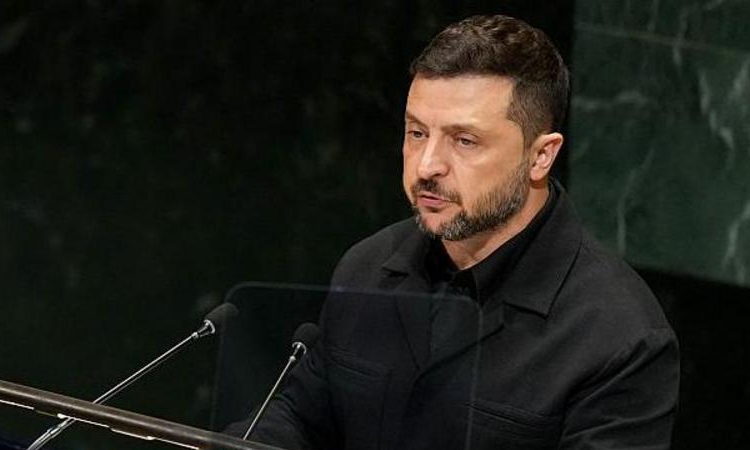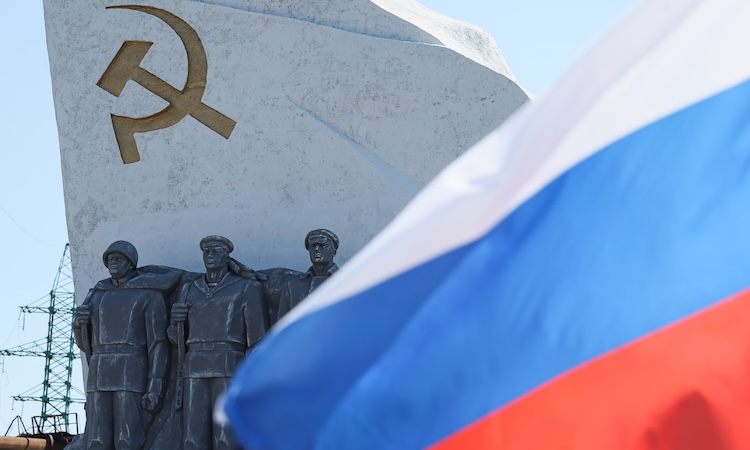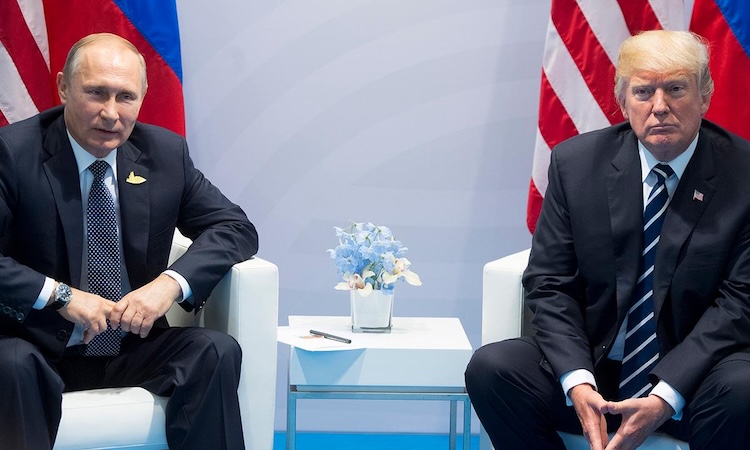RT reporter and CPGB-ML member Steve Sweeney is currently reporting live from the Donbass.
*****
Small numbers of antiwar activists took part in a national day of action organised by Britain’s Stop the War coalition on 8 July which, while calling for ‘peace’ in Ukraine, rallied around a demand that would in reality lead to a bloodbath in Donbass.
The slogan ‘Russian troops out’ – which was the first to appear in the antiwar group’s promotional material for the localised events – renders the rest of Stop the War’s demands meaningless and is indistinct from the position of the British government, the Biden regime and Nato.
It is also resolutely opposed by the people of Donbass, who have suffered daily shelling by Ukrainian forces for the past nine years. Many of them have explained to me that if Russian forces were to leave the region, it would lead to an unthinkable massacre.
Reality on the Donbass frontlines
I started writing this article on my way back from a shelling in which two people – a man and a woman – had been killed in a Ukrainian attack on a shopping area in Donetsk city. The attack took place at a time when many would have been picking up last-minute groceries on their way home from work.
Just a few hours later, news filtered through of the partial destruction of a hospital in nearby Makeevka – one of nine medical facilities hit that day – leaving “a lot of casualties” according to staff there.
I visited the scene soon after the Ukrainian strike, speaking to traumatised health workers and local residents who have now been living with the impact of daily shelling for nearly a decade. While they want peace, the fear of Russian troops leaving them unprotected is very real.
Attacks such as these – designed for maximum impact – are not uncommon. They take place every day with western-supplied weapons and grad rockets terrorising the people of Donbass. Schools, market places, hospitals, homes, bus stops and workplaces are frequently struck, while petal mines litter the streets.
But most of the strikes on civilian areas are deliberately ignored by western media, which focus almost solely on Russian strikes. Yet while the people of Donbass have been subjected to shelling and killings since April 2014 after the US-backed Maidan coup, Stop the War have claimed in an open letter to prime minister Rishi Sunak that “the immediate cause of this disastrous war in Ukraine is Russia’s invasion”, which is patently untrue.
Real meaning of the demand for ‘Russian troops out’
The call for a Russian withdrawal is particularly dangerous and reckless while tens of thousands gather ominously on the borders of Donbass after launching a counteroffensive with western-supplied weapons and military hardware, and just days before the opening of the Nato summit in Vilnius.
It begs the question: Russian troops out of where? Out of Donbass, where soldiers are holding defensive lines against forces that would carry out a massacre of Russian speakers? This is where Moscow’s forces are concentrated, so presumably this is what Stop the War and its supporters are asking for.
So who else should leave? The communists who have also taken up arms to defend the region? The local Donetsk people’s militia, whose members are on the frontlines defending their homes and families?
The removal of defensive lines in Donbass would in all likelihood lead to a genocide of Russian speakers at the hands of Ukrainian forces. This is not merely hyperbole, as recent history has shown.
At least 14,000 people were killed in Donbass before February 2022, the majority of them civilians and Russian speakers, but also including members of the Ukrainian armed forces. This figure has been accepted by Ukrainian foreign minister Dmitry Kuleba, who confirmed the death toll during a 2021 visit to Slovakia.
In Donetsk city, locals react with horror at the idea of Russian troops leaving the region.
“Do they want to kill us?” retail worker Natasha asked. “We waited for years for soldiers to come and help us. We were living in hell. You can’t begin to understand what it was like.”
Her partner and brother have both volunteered to defend the city. She is proud of them, but fears that their lives will be cut short as the battle intensifies against the Ukrainian counteroffensive.
“We used to live peacefully beside one another. Look, we still have Ukrainian shop signs, Ukrainian writing. We don’t hate Ukrainians. But we are exhausted. We want this to end. But if Russian soldiers leave, we will die.”
Retired engineer Vladimir agreed. He served in the military in his youth, attending university and working across both Russia and Ukraine, then part of the Soviet Union.
“Russian soldiers should have come earlier. We were being killed by Ukrainian nazis, you know them? Azov, Right Sector – the Banderites? Every day they are shooting [artillery fire] at us. Why? There are no soldiers here, just old people, women, children.
“Yes, we want peace. This is our hope. But there are thousands [of Ukrainian soldiers] wanting to come here and they say they will kill us, that we are not human. These people are given weapons by the west, we don’t understand why.”
Tailing the Labour party – and British imperialism
The apparent lukewarm response to the call for localised antiwar action in Britain, with many of Stop the War’s previously most active groups not even holding an event, is perhaps not surprising given the organisation’s confused position over the Ukraine conflict.
In part it flows from the mistaken view that Russia is an imperialist country and that the conflict is being waged between two equally bad sides – a variation on the ‘neither Washington or Moscow’ line, which in reality always meant Washington.
But the demand for Russian troops to leave Donbass is most likely a concession – and it’s a major one at that – to the Labour-affiliated trade unions Stop the War is reliant on for financial and other support.
The trade unions themselves have adopted a disastrous position on Ukraine, immediately falling in line with the British ruling class, while the GMB has gone as far as to call for increased spending on arms manufacturing and for more weapons to be sent to Kiev.
The Labour party – which has always been a party of imperialism – has shut down any debate on the conflict, proscribing the Stop the War coalition while threatening MPs and others to prevent them criticising Nato.
Not one single Labour MP has challenged the party leadership on this, with all those who signed a Stop the War statement following the launch of Russia’s military operation last February falling meekly into line and withdrawing their support.
But the Communist Party of Britain (CPB) – which religiously tails the Labour and trade union bureaucracy – has done the same, going to great lengths to explain how it opposes “Putin’s invasion”, even plastering this line over promotional material during last year’s disastrous electoral campaign.
The CPB even went so far as to call for United Nations ‘peacekeepers’ to be stationed in Ukraine to “protect communities from attack”, while enthusiastically supporting the demand for ‘Russian troops out’.
Two lines in the communist movement, two responses to the war
Meanwhile, communists in Russia have been fighting on the frontline in Donbass, giving their lives to defend their homeland from neo-nazi militia and to prevent a genocide of Russian speakers.
In February last year, just ahead of the launch of Russia’s military operation, the Communist Party of the Russian Federation (CPRF) called for an international antifascist front against the “Nato-led nazification of Ukraine”. The party’s appeal went largely ignored.
Italian trade unionist Enrico Fiorini expressed surprise at the position of Britain’s so-called progressive movement while on a solidarity visit to Lugansk.
By contrast, Italy has seen mass protests and strikes organised around the slogan: ‘Lower your guns, raise our wages,’ and demanding withdrawal from Nato.
“We are against war,” Florini said, explaining how workers had stopped planes from leaving Pisa airport after packages of humanitarian aid turned out in fact to be loaded with weapons and munitions bound for Ukraine.
“The government lied because workers would never accept sending arms to kill people with. We are against this and we are against Nato’s war,” he added.
The country has become the world’s sixth-largest arms manufacturer and military spending has increased from 1.4 percent of GDP to 2 percent of GDP, in line with Nato’s demands.
At the same time, Italy has been plunged into a deep economic crisis, with spiralling inflation, wage stagnation and rising unemployment seeing the country slide into recession.
“We need more actions internationally,” he continued. “Workers have the power to stop Nato’s wars and we need to be united. The people here [Donbass] are Russian. They speak Russian, identify as Russian. Russian soldiers cannot leave here. It would be a massacre. We remember 2014.”
While Britain’s antiwar movement – backed by the Communist Party of Britain and the trade union bureaucracy – falls in behind their own ruling class, the people of Donbass continue to suffer daily shelling and attacks from Ukrainian forces.
Historical examples of meaningful non-cooperation
It is a far cry from the events of 10 May 1920, when future Communist Party of Great Britain leader Harry Pollitt inspired the stevedores and dockers of east London as they refused to load munitions onto the Jolly George ship bound for Poland to wage war against revolutionary Russia.
“The strike on the SS Jolly George has given a new inspiration to the whole working-class movement,” Pollitt said.
“On May 15th, the munitions are unloaded back onto the dock side, and on the side of one case is a very familiar sticky-back, ‘Hands Off Russia!’ It is very small, but that day it was big enough to be read all over the world.”
The lead shown by the workers – not all of whom were ardent Bolsheviks – was enough to seal the defeat of the British ruling class’s plans to invade Russia. Militant action stopped the government in its tracks.
This pressure led the Trades Union Congress’s parliamentary committee to threaten a national strike, with workers “ready to hold themselves to … down tools” if the government pressed ahead with its plans for war.
It worked. Prime minister David Lloyd George’s national coalition government was forced to give reassurances that it did not intend to attack Soviet Russia after all.
This spirit has been seen in subsequent actions over the years, including that of the Rolls Royce workers in Scotland, whose refusal to allow engine parts for fighter jets used in the US-backed coup against the democratically-elected Allende government in Chile was captured in the film Nae Pasaran.
Italian workers – and others, including those in Greece – have shown that militant action targeting the centres of war, the factories producing arms and the transport networks shipping deadly payloads can halt the wars waged by imperialism.
In Britain too, mass action by the working class can bring an end to the Ukraine conflict. But workers are being deceived by the leadership of the trade unions and the imperialist Labour party, and let down by the capitulation of what passes for an antiwar movement.
It is time to get off our knees.















